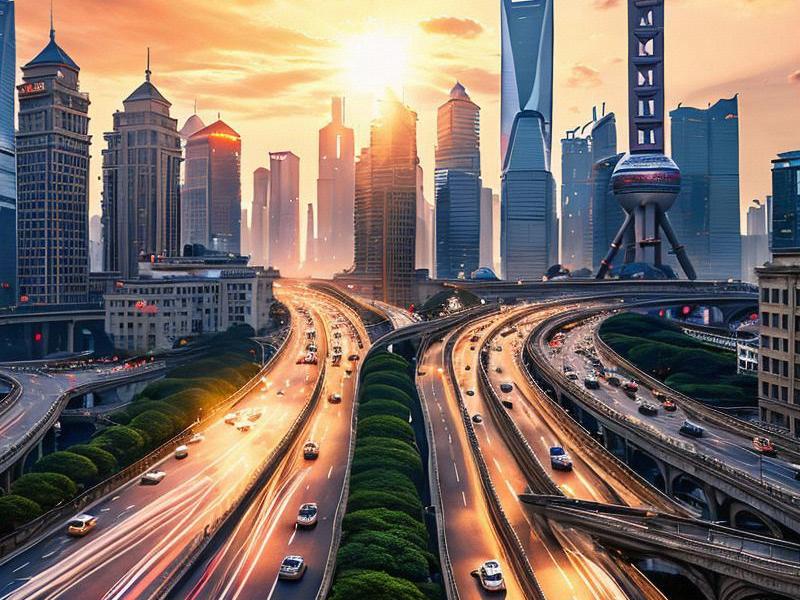This article delves into the multifaceted aspects of Shanghai, exploring its status as a global metropolis, the remarkable urban development it has undergone, the seamless cultural integration it embodies, and its position as an economic powerhouse. Shanghai's story is one of transformation, innovation, and a vibrant blend of tradition and modernity.

Shanghai, the largest city in China and one of the most dynamic cities in the world, stands as a beacon of globalization. With its strategic location at the mouth of the Yangtze River, Shanghai has long been a hub for international trade and commerce. Over the past few decades, it has emerged as a global financial center, attracting multinational corporations, foreign investors, and talented professionals from around the world.
The city's skyline is a testament to its rapid urban development. Towering skyscrapers, such as the iconic Oriental Pearl Tower and the futuristic Shanghai Tower, dominate the skyline, symbolizing Shanghai's ambition and progress. These architectural marvels house world-class businesses, luxury hotels, and cutting-edge research institutions, making Shanghai a hub for innovation and entrepreneurship.
One of the most striking aspects of Shanghai is its seamless cultural integration. As a city that has been influenced by various cultures over the centuries, Shanghai offers a unique blend of traditional Chinese culture and Western influences. The Bund, a historic waterfront area, showcases this cultural fusion with its colonial-era buildings, European-style cafes, and bustling markets. At the same time, the city's vibrant art scene, including world-renowned museums like the Shanghai Museum and the Power Station of Art, reflects its commitment to preserving and promoting cultural heritage.
爱上海同城419 Shanghai's economic prowess is unparalleled. It is the financial capital of China, with the Shanghai Stock Exchange being one of the largest and most important stock exchanges in the world. The city is also a major hub for manufacturing, technology, and logistics, with industries such as automotive, electronics, and pharmaceuticals thriving in its industrial parks. Shanghai's economic success has not only transformed the city but also had a profound impact on the entire Yangtze River Delta region and beyond.
The city's government has been instrumental in driving this transformation. Through strategic planning and investment in infrastructure, education, and innovation, Shanghai has created a favorable environment for businesses and residents alike. The city's public transportation system, which includes one of the largest metro networks in the world, ensures efficient connectivity and mobility for its residents. Additionally, Shanghai's commitment to sustainability and green development is evident in its efforts to reduce carbon emissions, promote renewable energy, and crteeaeco-friendly urban spaces.
Shanghai's educational institutions play a crucial role in fostering talent and innovation. Renowned universities such as Fudan University and Tongji University attract students and researchers from around the world, contributing to the city's intellectual capital. These institutions are at the forefront of research and development in various fields, including science, technology, engineering, and medicine, further solidifying Shanghai's position as a global knowledge hub.
上海龙凤419贵族
The city's vibrant cultural scene is another aspect that sets Shanghai apart. From world-class theaters and concert halls to art galleries and film festivals, Shanghai offers a rich cultural experience for residents and visitors alike. The city's food scene is equally diverse, with a mix of traditional Chinese cuisine and international flavors. From bustling night markets to fine dining restaurants, Shanghai's culinary offerings are a testament to its cultural diversity and openness to the world.
Shanghai's position as a global metropolis is not without challenges. The rapid urbanization has brought about issues such as traffic congestion, housing shortages, and environmental concerns. However, the city's government has been proactive in addressing these challenges through innovative solutions and sustainable practices. For example, Shanghai has implemented policies to promote green transportation, such as expanding its metro network and encouraging the use of electric vehicles. The city is also investing in renewable energy projects and sustainable urban planning to ensure long-term environmental sustainability.
上海龙凤419社区 Despite these challenges, Shanghai remains a symbol of China's economic and social progress. Its success story serves as an inspiration for other cities around the world, demonstrating how a city can transform itself into a global hub through strategic planning, innovation, and a commitment to sustainability. Shanghai's ability to balance economic growth with cultural preservation and environmental sustainability is a model that other cities can learn from.
The city's future looks promising, with continued investment in infrastructure, education, and innovation. Shanghai is poised to play an even more significant role on the global stage, driving economic growth and cultural exchange. The city's vision for the future includes becoming a leading global city in terms of innovation, sustainability, and quality of life.
In conclusion, Shanghai is a global metropolis that embodies the spirit of globalization, urban development, cultural integration, and economic power. Its unique blend of tradition and modernity, coupled with its commitment to sustainability and innovation, makes it a city that continues to inspire and captivate the world. As Shanghai looks to the future, it remains a beacon of progress and a symbol of China's rise as a global superpower.